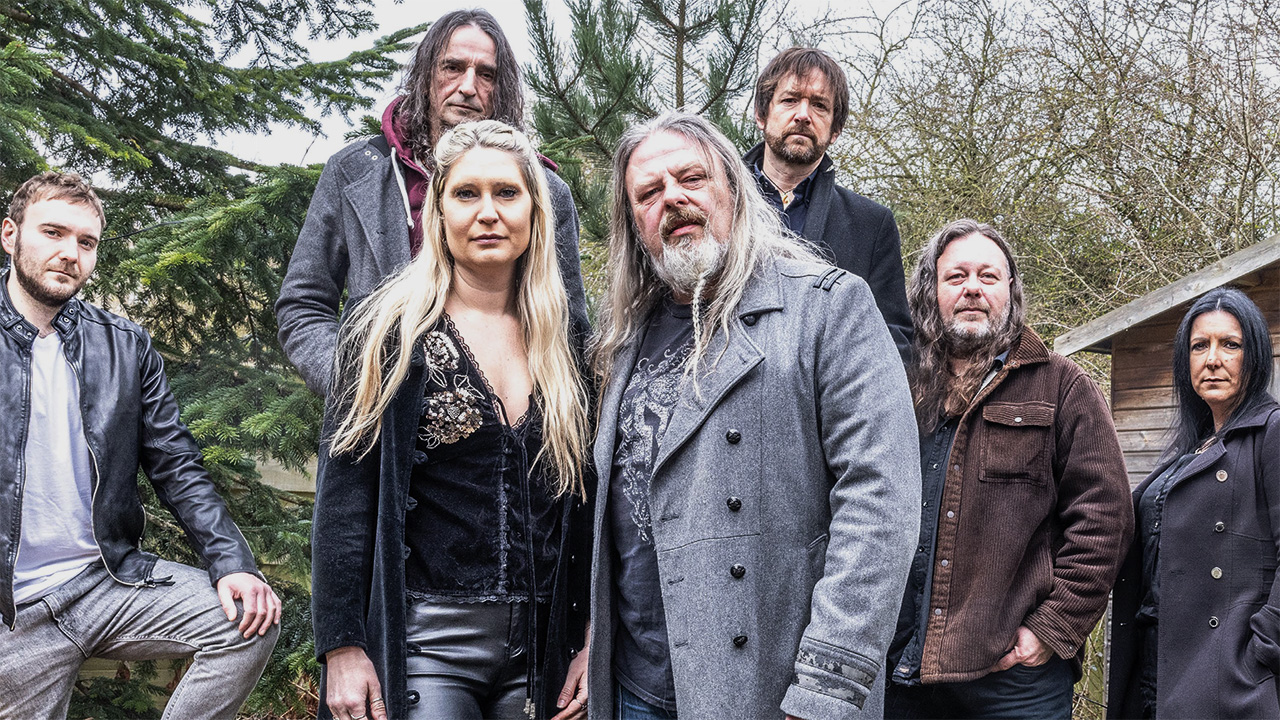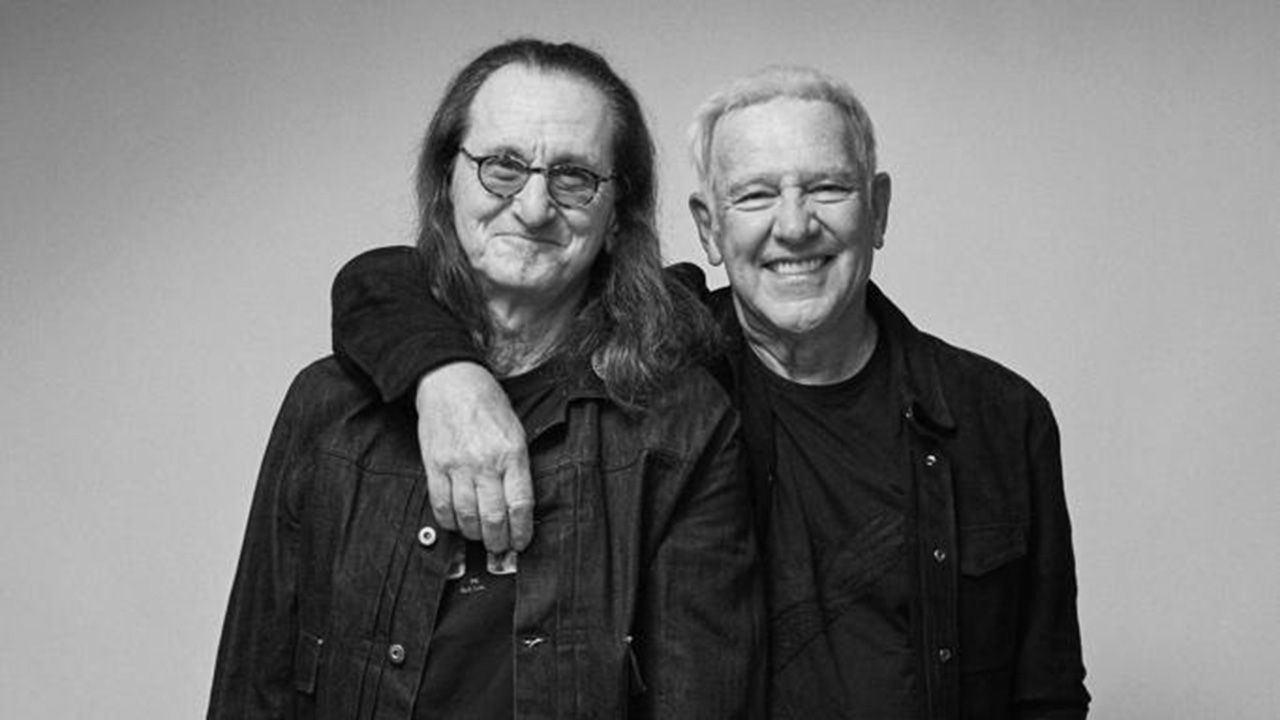“That’s the real boot in your privates – you’re focused on an album and then you’ve got to do two!” Mostly Autumn don’t just make records. They also make full-length, full-quality limited-edition companion records
As their 30th anniversary looms, band leader Bryan Josh discusses the joy and challenge of continuing to create big, long songs with big, long guitar solos, even if some people think it’s too much

For three decades Mostly Autumn and Bryan Josh have unerringly followed their own path. As Yorkshire’s finest make a splash with Seawater, their bandleader discusses writing on instinct, reflections on mortality, and the challenges and rewards of living and breathing music.
“Mostly Autumn is life, loss and nature, generally speaking,” says founding father Bryan Josh. “We’re moved by nature, the sadness of loss, and the light and glory of life, making the most of it. Those are the messages that have always come through and I guess we just do it in different ways on each album.”
From For All We Shared... in 1998 through to the freshly-hatched Seawater, those themes permeate and define the distinctive style of Mostly Autumn. Seawater is the follow-up to 2021’s Graveyard Star, an album that found Josh in a distinctly sombre mood, bearing the mental toll of lockdown.
“That was like a diary of a really bad time,” he says. The new record, by contrast, is “not as heavy and weighed down” as its predecessor, with Josh describing the songs as “almost uplifting – in a way.”
The mood may be more buoyant, but Seawater is a record of powerful currents, with Josh’s musical craftsmanship apparent. “An album is a song in itself,” he explains. “You have to feel where the energy and emotion lead you from song to song. It should flow and take you to places as it goes. In some ways, the album was written like that; I’d be working on a song and thinking, ‘What does it feel like should come next?’ It was instinct-driven.”
The band’s signature themes are articulated beautifully in When We Ran, a song that sprang from the passing of Josh’s father and reflections on his own advancing years. “He died when he was 55. It was a really curious feeling, knowing that I’m older than he was when he died – that I’ve passed what he had in life. I got quite emotional. It felt really sad.” But rather than wallow in grief, the lyrics celebrate the time they had together: “the magic of the memories, reliving us out there walking and climbing in the hills.”
The idea for Mars came when Josh was lying in bed, imagining what it would be like to be on the red planet, longing for home and the people you most care about. “It developed into something about loss,” he says. “The message is that you’ll never love anyone more than when you can’t have them any more. It’s about taking love or people for granted.”
Sign up below to get the latest from Prog, plus exclusive special offers, direct to your inbox!
Two connected songs form a mini suite “about the wars going on at the minute – and any war, really,” says Josh. “When Nations Collide is about people attacking other countries. My Home carries on from that: it’s someone stood in any place in war, and their house has been blown to pieces. It’s my vision of somebody stood there thinking, ‘It’s gone, my life, where I grew up, everything...’”
So there’s that streak of darkness that flavours so much of the band’s catalogue. In the same vein, Seawater just wouldn’t be a Mostly Autumn album without a proper prog epic; and the 19-minute title track fits that bill.“The first half of it was a dream I had about six years ago,” says the bandleader, who compares writing a long-form composition to coming up with five songs in one.
“That was tricky! You’ve got nine minutes of it, but you know more needs to happen. Wverything needs to happen for the right length of time and needs to go to the right place; it needs to finish in a certain place, and it needs to tell a story. With a big song like that, it’s got to have an atmosphere and move where you want it to move. I did feel some trepidation at having to make it finish – but it’s great fun when the ideas are coming through.”
Ecology meets mysticism in Seawater as an apocalyptic tsunami sweeps the globe. “It’s about the sea getting very angry with the world and just saying, ‘I’ve had enough of this,’” Josh says. “Then it rises and wipes everything out. It’s a bit more mystical than that, a bit witchy as well; and it all happens on Halloween.
“When I had the dream, I was in Whitby, looking up at Whitby Abbey on a very stormy night, and that’s where the image in my head came from. It’s a very fearful subject – although it is just a song at the end of the day. Or a warning. I don’t know. I hope not!”
It’s quite a rare thing we do. Because we’re in control of the business, we can do what the hell we want!
Alongside the 10 tracks on the album proper, the limited- edition version of Seawater includes a second disc of all-new material just for good measure.“That’s the real boot in your privates,” says Josh. “You’re focused on an album and then you’ve got to do two! They’re not rejected songs; they all have to be strong.”
Mostly Autumn have been creating these limited-edition pre-orders for a while now, using them to encourage crowdfunding. “It’s tough, but it pays for the whole thing,” says Josh. “It funds the business, it funds the studio, all the overheads. Then the general release does its own thing.
“It has its limitations in certain areas; you don’t have three million to spend on advertising, but you do get more back. If you can get the fanbase interested, generally speaking it’s a good way of doing it.”
Running their own label, managing themselves and funding their albums through pre-order campaigns affords Mostly Autumn a degree of self- sufficiency both financially and creatively. And as the song Seawater bears ample testament, they’re not afraid of using that freedom to make big, bold musical statements.
“I don’t know many bands who have loads of big songs with big, long solos any more. I don’t care if people think, ‘Crikey, that’s a bit too much of that!’ It’s quite a rare thing we do. Because we’re in control of the business, we can do what the hell we want!”
Sometimes you think, ‘Is this as good as I think it is, or am I just blind to it?’ It’s with you all the time
Speaking of those big solos, the sound of Josh’s Stratocaster is deep in Mostly Autumn’s sonic DNA. Much like his instinctive approach to writing, when he lays down a lead take, he doesn’t map out a route before setting forth. “I’ve left some of my soul on this record,” he says. “I just press record and it’s usually the first or second take. I just lose myself in it. I know when it’s right – and that’s what all my solos are. I’m usually making weird noises when I’m doing it; I tune into something. It can be untidy at times, but it’s feel. I express myself better in life on a guitar.”
All the solos on Seawater are first or second takes. “I wing it, really,” says Josh, who names David Gilmour, Steve Hackett and Ritchie Blackmore as his holy trinity of the six-string. “Some people might think, ‘Why don’t you work something out?’ But I’m a passionate player; as long as I get the feeling across, that’s where I’m at. I try to get inside the song.”
Maintaining a sense of perspective on a project that required months of effort is another challenge altogether. As the engine that powers Mostly Autumn, no one is closer to Seawater than Josh. “Apart from the writing, I’ve listened to this hundreds of times in different orders, sorting songs out, writing more songs. You do step away from it when you have the chance, but it’s really 24/7. Sometimes you think, ‘Is this as good as I think it is, or am I just blind to it?’ It’s with you all the time.”
Then, once the album is mixed, mastered and sent to the manufacturers, its fate is out of his hands. “It’s a really strange feeling; it’s like it’s not yours any more. It’s going out to people all over the world. I get very intense about it. I live and breathe it all the time.”
Mostly Autumn have built their following the old-fashioned way, playing great shows, pouring care and attention into their music, and growing their fanbase one listener and performance at a time. Next year marks the 30th anniversary of the band’s founding – although it seems Josh has been too wrapped up in making Seawater to give that milestone much thought.
“I keep forgetting what year we’re in!” he says. “We probably should do something. I’m really pleased that we’re still here and still doing it. I feel privileged that people buy our albums and come to the shows. They believe in and love what we do and that just blows me away. We’ve done a lot of stuff and we’re still here. Obviously it would be nice to grow. Essentially, it’s a family-run business that’s always striving to move forward.
“But just being able to do the music is enough. You never know what’s around the corner; but I’m very content. It’s amazing.”
After starting his writing career covering the unforgiving world of MMA, David moved into music journalism at Rhythm magazine, interviewing legends of the drum kit including Ginger Baker and Neil Peart. A regular contributor to Prog, he’s written for Metal Hammer, The Blues, Country Music Magazine and more. The author of Chasing Dragons: An Introduction To The Martial Arts Film, David shares his thoughts on kung fu movies in essays and videos for 88 Films, Arrow Films, and Eureka Entertainment. He firmly believes Steely Dan’s Reelin’ In The Years is the tuniest tune ever tuned.





